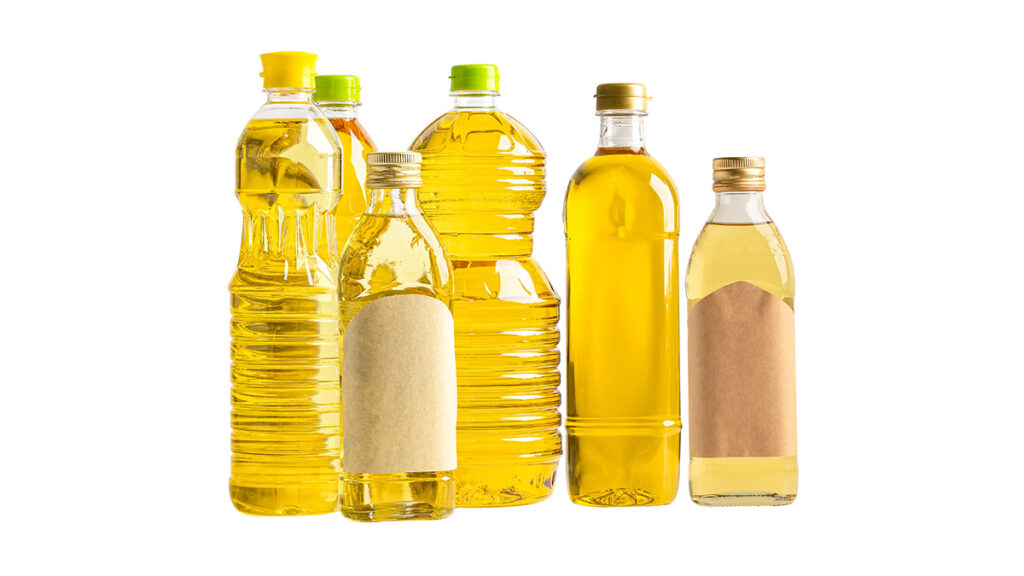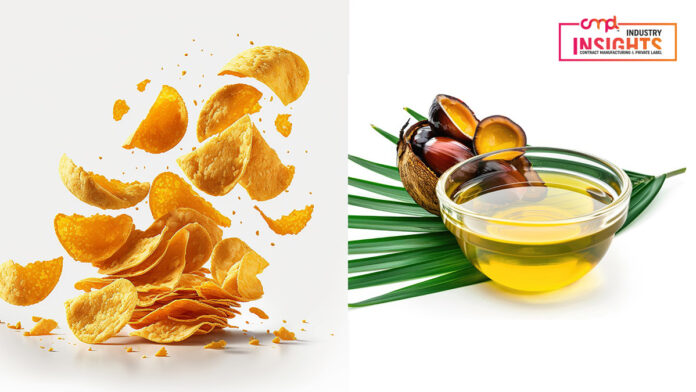As Indian consumers increasingly prioritize their health, the salty snacks market is undergoing a significant transformation. A key area of focus is the shift away from palm oil, traditionally a staple ingredient in snacks, towards healthier alternatives. This trend is creating both opportunities and challenges for brands and contract manufacturers (Contract Manufacturers) who must work together to adapt to these changes.
Shifting Consumer Preferences and the Role of Contract Manufacturers
A recent Mintel report highlights that 39% of Indian consumers consider snacks made with palm oil unhealthy, a sentiment particularly strong among urban residents. Leading brands like PepsiCo are trialing sunflower oil and palmolein in their Lay’s chips, reflecting the growing demand for palm oil-free alternatives. For brands, this means re-evaluating their ingredient choices and ensuring that their products meet new health standards. For contract manufacturers, this means adapting their production processes to incorporate these healthier oils and maintaining stringent quality standards.
Problem: Meeting Consumer Demand for Healthier Options
The increasing consumer awareness about the health impacts of palm oil has led to a rising demand for snacks made with healthier alternatives. Brands must respond to this shift to stay competitive. However, the transition is not straightforward and presents several challenges:
- Ingredient Sourcing: Finding reliable sources of healthier oils like rice bran, groundnut, sunflower, mustard, and coconut oil.
- Production Adaptation: Adjusting manufacturing processes to accommodate new ingredients while ensuring consistency and quality.
- Cost Management: Balancing the higher costs of alternative oils with competitive pricing for consumers.
- Consumer Education: Informing consumers about the benefits of healthier oils to build trust and drive sales.
Trends Shaping the Industry
To stay ahead, Brands and Contract Manufacturers need to align their strategies with emerging trends in the snacks market:
1. Adoption of Healthier Oil Alternatives
Brands are specifying the use of oils such as rice bran, groundnut, sunflower, mustard, and coconut oil in their products. At the same time,Contract Manufacturers must invest in technology and processes that can handle these oils efficiently while maintaining product quality and consistency.

2. Enhanced Transparency and Traceability
Consumers demand greater transparency about product ingredients. We should implement robust traceability systems, documenting the entire supply chain from sourcing raw materials to final product packaging, ensuring every step meets health and safety standards.
3. Flexibility and Customization
As brands cater to diverse regional tastes and preferences, Contract Manufacturers must offer flexible production capabilities, including the ability to customize recipes and formulations to suit different consumer demographics and regional flavor profiles.
4. Sustainability and Ethical Sourcing
Environmental concerns are driving consumers to seek products made with sustainably sourced ingredients. We should also prioritize partnerships with suppliers who adhere to sustainable practices, ensuring that the final product meets consumers’ ethical expectations.
5. Technological Advancements
The integration of advanced technologies such as AI and IoT in manufacturing processes can enhance efficiency, reduce waste, and improve product quality. These technologies also provide valuable data insights, helping brands refine their offerings based on consumer feedback and preferences.
Solutions: Strategic Planning for Future Trends
To address these challenges and capitalize on emerging trends, brands and Contract Manufacturers need to adopt strategic solutions:
1. Highlight Healthier Oil Alternatives
Use packaging and marketing to communicate the benefits of oils like groundnut and rice bran. Brands such as Let’s Try and WellBe have successfully implemented this strategy, reinforcing their commitment to health-conscious consumers.
2. Target Metro Dwellers
With 50% of metro consumers viewing palm oil snacks as unhealthy and 39% willing to pay more for alternatives, focusing on this demographic can drive sales. Tailored marketing campaigns and targeted product distribution can help capture this market.
3. Explore Regional Preferences
Understanding regional variations in oil preferences can help brands tailor their products. For instance, consumers in southern India may prefer coconut oil-based snacks, while those in northern regions might favor mustard oil.
4. Address Pricing Concerns
While there is a willingness to pay more for healthier options, many consumers remain undecided. Brands and Contract Manufacturers should strive to balance health benefits with cost-effectiveness, ensuring that healthier snacks are accessible to a broader audience.
5. Educate Consumers
Clear communication about the types and benefits of healthier oils is essential. Brands can build trust by educating consumers through packaging, social media, and influencer partnerships about why these oils are better for health and the environment.
Benefits of Shifting to Healthier Oil Alternatives
1. Health Benefits
Healthier oils such as rice bran, groundnut, and sunflower oils are rich in unsaturated fats and antioxidants, which can reduce the risk of heart disease and other health issues.
2. Consumer Trust and Loyalty
Brands that transparently communicate their use of healthier ingredients can build stronger consumer trust and loyalty, leading to increased sales and brand loyalty.
3. Market Differentiation
Offering palm oil-free products can help brands stand out in a crowded market, appealing to health-conscious consumers looking for better snack options.
4. Environmental Impact
Sustainable and ethical sourcing of alternative oils can significantly reduce the environmental footprint, aligning with the growing consumer demand for eco-friendly products.
The Role of Influencers
Social media influencers are playing a pivotal role in this shift by inspiring consumers to scrutinize product labels and reduce their intake of unhealthy fats. Influencers like Revant Himatsingka, known as Food Pharmer, highlight the ubiquity of palm oil in packaged foods and urge consumers to cut down on its usage for health and environmental reasons. His advocacy underscores the importance of transparency and education in fostering healthier eating habits.
Conclusion
The palm oil-free movement in India’s snacks market is gaining momentum, driven by health-conscious consumers and influencer advocacy. By adapting to new trends, investing in advanced technologies, and prioritizing consumer education, they can play a pivotal role in shaping the future of the snacks industry. As more brands enter the space, the focus on healthier oil alternatives will become a significant factor in consumer purchasing decisions, setting the stage for a healthier and more transparent snacks market in India.
Based on the latest report by Mintel


